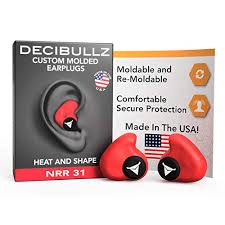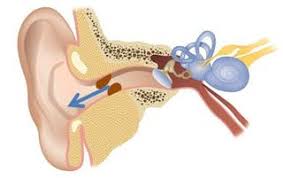Ear plugs are a great way to protect your ears from excessive noise, but they can also be dangerous if not worn correctly. In this blog post, we will discuss how to wear ear plugs the right way for maximum protection. We will also cover the side effects of wearing ear plugs too often, and when it is safe to wear them every night.
Table of Contents
- Ear Plugs: What They Are And How to Wear?
- Ear Plugs and Noise Blocking
- Benefits of Wearing Ear Plugs
- Disadvantiges of Wearing Ear Plugs
- Medical Side effects Caused by Wearing Ear Plugs
- Conclusion
Ear Plugs: What They Are And How to Wear?
Ear plugs are small, cone-shaped pieces of soft foam that are inserted into the ear canal in order to block out noise. They are made from a variety of materials, including silicone, latex, and even wax. The most important thing to consider when choosing ear plugs is comfort – you want something that will be gentle on your ear and not cause any irritation.
There are a few different ways to wear ear plugs, but the most important thing is to make sure that they are inserted properly. Start by rolling the ear plug into a small, thin cylinder. Then, gently insert it into your ear canal and hold it in place for a few seconds. You should feel the ear plug expand as it fills up your ear. Once it is fully expanded, you can release it and allow it to settle into place.
Ear Plugs and Noise Blocking
Today, the greatest noise reduction rating available is for earplugs, which have a NRR of 33 decibels. Earplugs are able to achieve a higher NRR because they are in direct contact with the ear, whereas earmuffs can only reach a NRR of 30-31.
If you wonder, do ear plugs block out all noise, the answer is not. Earplugs will not completely block out all noise. However, they will reduce the overall noise level and make it easier to concentrate or sleep in a noisy environment. If you are looking for complete silence, ear plugs may not be the best option.

Earplugs are an easy solution for a noisy sleep environment since they significantly lessen noise. Even better, no earplug is meant to completely silence noise, so you won’t be late for your alarm or need to worry about an emergency.
Benefits of Wearing Ear Plugs
There are many benefits to wearing ear plugs, including the prevention of noise-induced hearing loss. Ear plugs can also help you get a better night’s sleep by blocking out unwanted noise. Additionally, ear plugs can help to relieve pain in the ears caused by flying or diving.

Disadvantiges of Wearing Ear Plugs
There are a few disadvantages to wearing ear plugs, the most notable being earwax buildup. Ear plugs can also cause your ears to feel plugged up and can lead to hearing loss if left untreated. Additionally, ear plugs may not be suitable for people with certain medical conditions.
If you’re looking for a way to protect your ears from loud noise or get a better night’s sleep, ear plugs may be right for you. Just make sure to choose a comfortable pair and insert them properly in order to avoid any potential side effects.
There is no harm in wearing ear plugs every night if it helps you get a better night’s sleep. In fact, many people find that their quality of sleep improves when they use ear plugs on a regular basis. However, it is important to make sure that you clean your ear plugs regularly. Otherwise, they can become a breeding ground for bacteria.

If you notice any earwax buildup, simply remove the ear plug and clean it off with soap and water. You should also avoid using ear plugs if you have an ear infection or other medical condition that could be aggravated by them. In addition to earwax buildup, there are a few other potential side effects of wearing ear plugs. These include temporary hearing loss, tinnitus, and vertigo. However, these side effects are rare and usually only occur if the ear plugs are not inserted properly.
Medical Side effects Caused by Wearing Ear Plugs
- Hearing Loss
- Tinnitus
- Vertigo
Hearing Loss. Noise-induced hearing loss is one of the most common side effects of wearing ear plugs. This type of hearing loss is caused by exposure to loud noise over an extended period of time. Ear plugs can help to prevent this by blocking out harmful noise.

If you notice that your hearing is beginning to decline, it is important to see a doctor as soon as possible. Hearing loss is irreversible, so it is important to take steps to protect your ears from further damage.
Tinnitus. Tinnitus is another potential side effect of wearing ear plugs. This condition is characterized by a ringing or buzzing noise in the ears. It can be caused by earwax buildup, an ear infection, or exposure to loud noise. Tinnitus can be treated with medication, but it is important to catch it early in order to prevent hearing loss.
Vertigo. Vertigo is a condition that can be caused by ear plugs if they are not inserted properly. It is characterized by a feeling of dizziness or spinning. Vertigo can be caused by ear plugs If you experience vertigo, remove the ear plugs and consult a doctor.
If you experience any pain or discomfort while wearing ear plugs, be sure to remove them immediately and consult your doctor. Ear plugs are generally safe for most people when used as directed, but it is always best to err on the side of caution.
Conclusion
Earplugs are a great way to protect your ears from loud noise or get a better night’s sleep. However, it is important to choose a comfortable pair and insert them properly in order to avoid any potential side effects. Do you have any questions about ear plugs? Leave us a comment below and we’ll be happy to answer them! And don’t forget to check out our other blog posts on all things hearing health!
